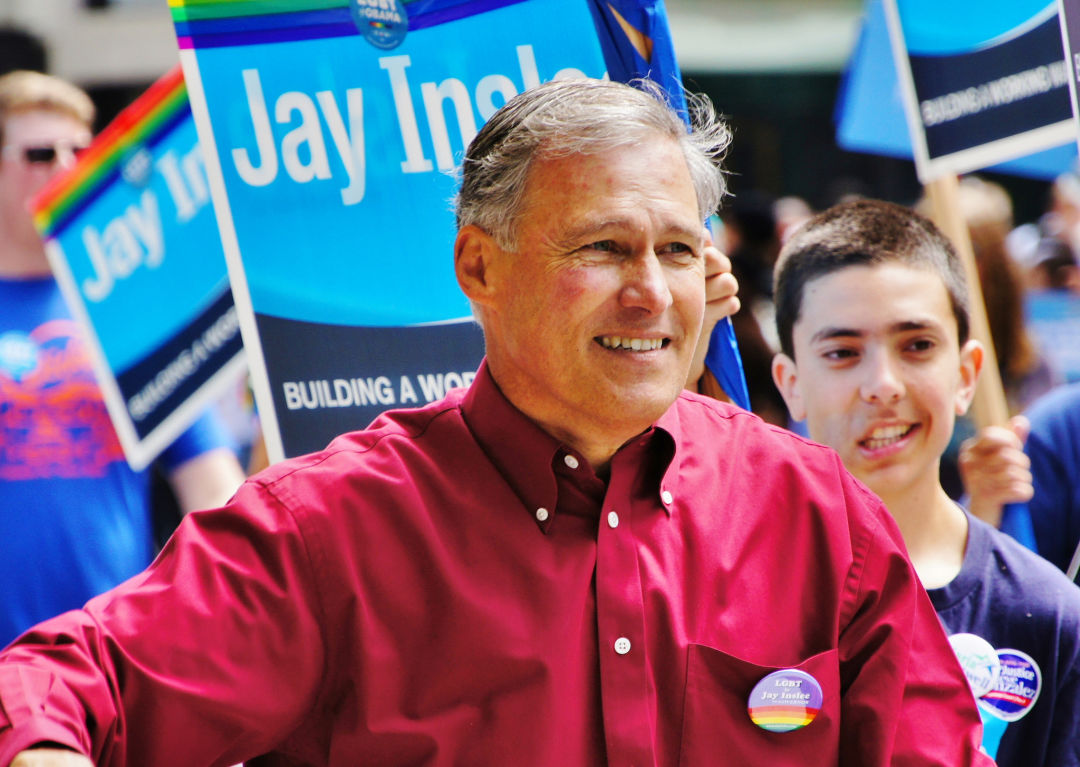Inslee's Capital Gains Tax Excludes Sale of Investment Homes

Jay Inslee at the Gay Pride Parade on June 24, 2012.
Image: sea turtle / Flickr
Governor Jay Inslee's two-year budget proposal he released on Thursday attempts to tackle a slew of ongoing struggles for the state—from the fate of orcas, to financial aid for college students, to K-12 education funding gaps, to added investments in mental health assistance and the opiate crisis.
But when it comes to having the worst tax system in the country—one that disproportionately taxes the poorest in the state 17.8 percent of their income, according to the Institute on Taxation and Economic Policy—lawmakers still have a long way to go.
Inslee plans to pay for that increased funding with adjustments to the state's tax code in three ways: a narrow capital gains tax estimated to affect just 1.5 percent of the state's wealthiest households; a 1 percent increase in the state's business-and-occupation tax on some services; and a 1 percent increase in the real estate excise tax, which would be used toward salmon and orca recovery efforts.
Households making about $660,000 or more in annual income would pay this 9 percent capital gains tax, which targets the sale of assets—like stocks or bonds—worth more than $25,000. Most striking is the exemption for the sale of investment property, like second or third homes. Though the real estate excise tax increase covers some of that, it only applies to those selling properties at a value of $1 million or more.
In response to a reporter's question on why he didn't include investment properties, Inslee said it would've been more difficult for the tax to pass. "We made a very wise decision to not include the sale of homes in that regard."
In the process of feeling out a capital gains tax that would earn the support of legislators, Inslee—who's considering a 2020 presidential run—is starting out small. The tax would still add an estimated $975 million in revenue in 2021, when it would first be implemented, according to the governor's office. The increased B&O tax would add the most revenue of $2.6 billion, while the real estate excise tax change would add just about $400 million.
But Inslee's budget proposal doesn't try to touch more controversial tax reforms, like reducing sales or property taxes on the overburdened low-income households or closing corporate tax loopholes—all talking points for Democratic lawmakers that have yet to see any real movement.
Those who have been watching news from the legislature closely knew a capital gains tax was coming. Such a modest capital gains tax doesn't exactly move the needle; it's a direction the state's been heading for a while. It does, however, put Inslee's fingerprints on a safe proposal that could actually pass.




